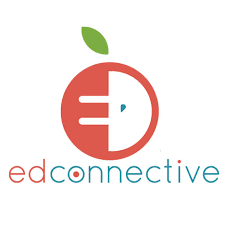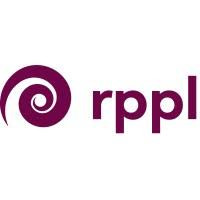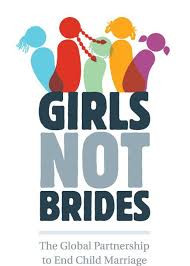EdTech Hub’s Purpose & Approach
EdTech Hub is an eight-year global research initiative funded and supported by the Foreign, Commonwealth and Development Office (FCDO), the World Bank, the Bill and Melinda Gates Foundation, and UNICEF. EdTech Hub was founded to produce more and better evidence about what works, for whom, in which contexts, and why — all in relation to the effective use of the various forms of educational technology (EdTech).
At EdTech Hub, we believe that technology has the potential to help solve the global learning crisis. However, that potential is not being realised.
EdTech Hub’s purpose, therefore, is to work with decision makers on finding tools, knowledge and evidence to make informed decisions about sustainable technology in education for particular contexts. EdTech Hub has a strong focus on research and evidence gathering and works towards having that evidence adopted in policy. For that reason, the needs of government are an important determinant for the work that we take up and inform the activities that we conduct.
Our vision is to improve learning outcomes for all children in low- and middle-income countries. We are achieving this by enabling decision-makers with access to evidence and to successfully scale effective, equitable and affordable EdTech solutions.
The AI Observatory
EdTech Hub’s AI Observatory scans global trends, leads innovative pilots, and distills practical insights to support decision-makers in low-and middle-income countries.
AI in education will widen the learning divide unless we design for the alternative now. Many education ministries struggle to easily assess the effectiveness and safety of AI interventions, nor do they have comprehensive regulations and policies to meet this moment.
The AI Observatory and Action Lab uses a hypothesis driven approach to generate evidence about strategies and approaches that we believe will narrow the learning divide in the age of AI and provide decision makers with timely, practical evidence.
Our goal is to ensure AI is integrated effectively and equitably, improving education systems and learning outcomes for all.
As part of the AI Observatory’s support to the Ministries of Education AI Challenge, R4D seeks in-country technical experts to work side-by-side with government teams leading this work. These experts will bring critical technical capabilities directly into government service delivery spaces, helping shape, test, and integrate AI use cases in real education system contexts
Consultant Role & Scope of Services
Your role will be flexible and responsive to the needs of the Ministry, working physically in their offices when possible and acting as a bridge between the technical and service delivery realities on the ground, and the broader AI Challenge cohort. You will be embedded with the team to provide hands-on support.
You will be contracted by R4D and work closely with the AI Observatory, the Challenge programme team, and the Ministry they are placed with.
You will be an expert in one or more of the following areas of expertise:
- AI development / machine learning
- Data science / data engineering
- Product management
- Public sector transformation
- Technology strategy
- AI ethics and governance
- Policy development (including education and technology related policy)
Requirements
We are looking for an expert that will be based in the same country as the Ministry team they are supporting. The countries we are looking to hire from are listed below. Please do not apply if you are based outside of these countries.
- Bangladesh
- Kenya
- Nigeria
- Pakistan
- Sierra Leone
- Philippines
Time commitment: Up to 14 days per month, ceiling of 98 days over the 7 months.
Start and end date: est. start date, 1st September 2025 – 31st March 2026.
Responsibilities
Responsibilities may include:
- Participating in discovery and diagnostic phases to support teams to think critically about the application of AI, and identify challenges and opportunities for AI integration in education service delivery;
- Advising on potential AI solutions and their feasibility within the ministry’s systems, policies, and constraints;
- Leading the build process and supporting testing of AI-enabled prototypes with ministry teams using agile and iterative methods;
- Leading or supporting data management tasks, including cleaning, structuring, or analysing government-held datasets;
- Supporting responsible and inclusive deployment of AI solutions, with sensitivity to system-level dynamics and power;
- Sitting physically with the Ministry team when possible, joining meetings, contributing to documentation, and acting as a proactive team member;
- Supporting ministry teams to develop their skills managing and collaborating with AI tech experts like yourself
- Feeding insights back to the AI Challenge core team to help shape cross-country support, peer learning, and tailored guidance;
- Supporting Challenge-wide learning activities, communities of practice, or other country teams on request, when capacity allows.
The role is highly collaborative. You will be expected to:
- Build strong working relationships with ministry counterparts;
- Adapt to evolving needs and iterate based on feedback;
- Share what they are learning regularly with the Challenge managers and peers;
- Uphold a culture of openness, reflection, and responsiveness;
- Proactively look for upskilling opportunities for the team you are working with.
Performance & Deliverables
Deliverables will be agreed on a case-by-case basis, depending on country needs and your expertise. They may include:
- Participation in and notes from discovery and co-design sessions;
- AI use case definitions, problem statements, or user journey maps;
- Technical input into prototype design, model development, or tool adaptation;
- Data analysis summaries or dashboards to support decision-making;
- Briefs or memos to support ministerial engagement or policy discussions;
- Learning materials, synthesis notes, or internal reflections shared with the Challenge team.
- Contributions into external facing learning outputs from Ministry engagement
All deliverables will follow agreed formats, quality standards, and timelines. They will be reviewed by the AI Observatory and Challenge team for learning and quality assurance purposes.
Qualifications & Experience
Essential
- Demonstrable expertise in a number of of the following areas:
- AI development / machine learning
- Data science / data engineering
- Product management
- Public sector transformation
- AI ethics and governance, the application of responsible AI principles
- Policy development (especially education and/or technology-related policy)
- Proven experience navigating complex, multi-stakeholder environments.
- Track record of contributing to or leading innovation projects, ideally within the public sector or large organisations
- Experience leading or consulting collaborative, multidisciplinary teams
- Evidence using Lean or similar test-measure-learn methodologies to develop innovative solutions under conditions of uncertainty.
Desirable
- Prior experience working directly with government ministries or public education systems.
- Knowledge of the education sector, especially in contexts where AI could enhance service delivery.
Skills & Competencies
- Technical & Analytical Skills
- Ability to build AI-based tech solutions from idea through testing to launch
- Ability to analyse, clean, and structure datasets; interpret findings to inform decision-making.
- Capacity to assess the feasibility and risks of AI integration in organisational or policy contexts.
- Skilled at translating complex technical concepts into clear, actionable recommendations for non-technical audiences.
- Collaboration & Communication
- Excellent relationship-building skills, with the ability to foster trust and open dialogue with ministry counterparts.
- Ability to coach people who are learning about the application of AI to their work context, but aren’t experts yet.
- Strong written and verbal communication skills for sharing insights with both technical peers and policy stakeholders.
- Comfortable facilitating workshops, co-design sessions, and knowledge-sharing activities.
- Adaptability & Problem-Solving
- Able to work in fast-changing environments and adjust approaches based on feedback and evolving needs.
- Creative thinker who can identify opportunities for AI integration that balance innovation with practical constraints.
- Proactive in anticipating challenges and addressing them constructively.
Behaviours & Attributes
- Commitment to ethical, inclusive, and responsible AI use.
- Sensitivity to system-level dynamics, equity, and power considerations in education and technology.
- Curious, reflective, and open to learning from diverse perspectives.
- Willingness to be embedded with ministry teams, actively participating in their day-to-day work.
- Collaborative spirit, contributing to both country-specific and cross-country learning.
How to Apply
Send a CV and a maximum 2-page cover letter outlining how you meet the person specification to: opportunities@edtechhub.org by 8am BST on 1st September (check your timezone here). At the top of your cover letter, please specify the country you are based in.
We recognise that women and people from other underrepresented groups often hesitate to apply unless they meet every requirement in the person specification. This job role has a detailed person specification and we don’t expect you to meet 100% of the criteria. If you’re excited about this role and you have some of the skills, experience and attributes listed above, we would love to hear from you.
This position was originally posted by EdTech Hub and has been curated by PurposePhil Career. To apply, please visit the original listing on the "apply" link below. We are not affiliated with the employer organization of this job ad or consultancy, and provide this curated listing as a service to our users.









